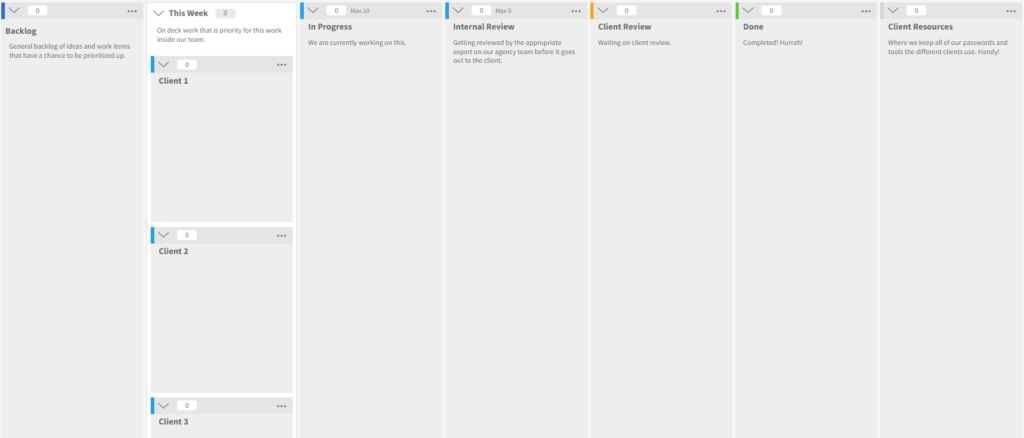Shifting audience expectations, more sophisticated marketing technology, and an increasing number of available channels have caused the marketing profession to fundamentally change. In order to deal with volatility and react to changes in the environment, marketers need a work process that allows them to adapt without getting derailed from their business goals.
Kanban supports marketers in improving how they manage their workflow and in using new circumstances to their advantage. Annual marketing plans are now a thing of the past, just-in-time prioritization is the name of the marketing game.

Shifting audience expectations, more sophisticated marketing technology, and an increasing number of available channels have caused the marketing profession to fundamentally change. In order to deal with volatility and react to changes in the environment, marketers need a work process that allows them to adapt without getting derailed from their business goals.
Kanban supports marketers in improving how they manage their workflow and in using new circumstances to their advantage. Annual marketing plans are now a thing of the past, just-in-time prioritization is the name of the marketing game.

Opportunity
Solution
Template

Use the template for Kanban Marketing Agencies shown above to structure all of the client work in your Kanban marketing agency on one board. With this board set up, you can plan and manage all of your ongoing work as well as house additional resources you need to get your client projects Done.
WIP limits are applied to the “In Progress” and “Internal Review” columns, where the team has the most control. Labels on the cards can signify priority as well or how task cards ladder up to larger client campaigns depending on your context. The team’s backlog area is split into this week’s emergent work, where each client has their own area. Depending on the number of clients you’re working with, this area may be larger or smaller for your team. The general backlog is a wonderful place to build a repository of your great ideas and discover synergies between your clients.
Use the calendar feature to track important milestones and due dates and the metrics options to monitor the overall health of your team. Keep a special eye on cycle time as a measure of the pace of your team’s delivery from the customer’s perspective.
Card templates in the Kanban board template allow you to quickly create new activities related to Research, Advertising and Content with their relevant recurring checklists and pieces of their descriptions.
For additional instructions on how to set up this board for your own team, read through the board instructions in the dedicated card in the backlog.
If you’re an internal marketing team, solely dedicated to marketing for one business, your board may be simpler than an agency, so you will also find in Kanban Zone another template for Internal Cross-functional Kanban Marketing teams.
Although this workflow layout and its features are also effective for the agency environment, using Blocking of cards can be crucial for a fast-paced internal team. Waiting on 3rd party might also be a column an internal team might choose to visualize on their board in order to keep an eye on the accumulations of items in the queue, aiming to influence it when possible.
Meet the Expert


“Agile and Lean frameworks have become the best-in-class way of working for marketers worldwide. So much of our success depends on being responsive, sustainably. Agile ways of working, and Kanban specifically, can get us there. But it requires a mindset shift to ramp up. It’s up to more traditional agencies and internal teams to invest in making this shift.”
Monica Georgieff is the Agile marketing agency founder of Automagically
As the former head of marketing for Kanbanize, a Lean and Agile project management tool, Monica began her career evangelizing the Agile mindset to marketers around the world, while also leading an Agile marketing team of her own. Her ongoing work is dedicated to making marketing teams flexible to change, unified in their goals, and successful in adopting a value-driven approach that brings measurable results.
Are you also an expert in your industry who uses Kanban?
If yes, then as part of our partner program, you could also promote your solution by sharing your template and expertise.

